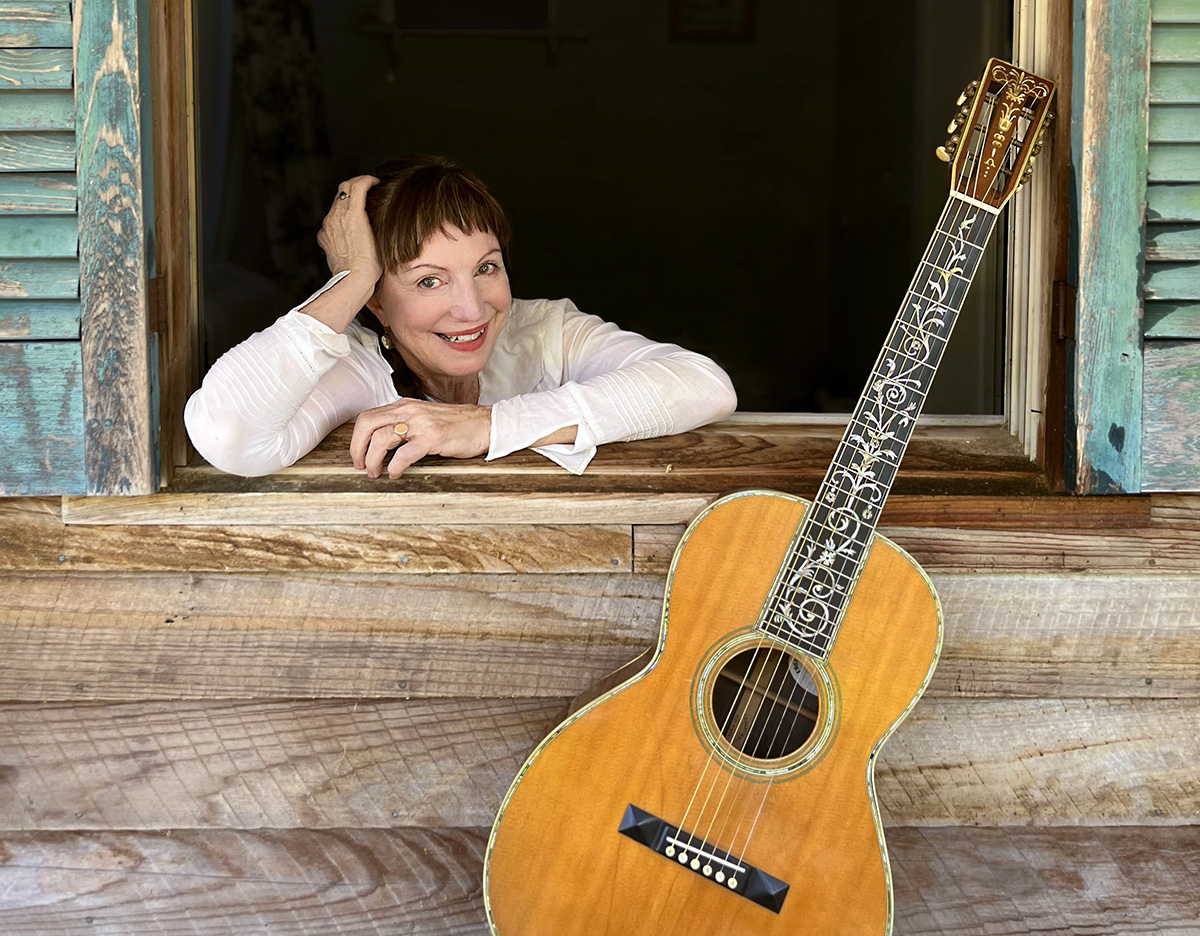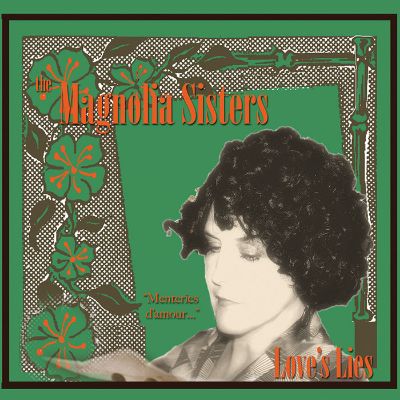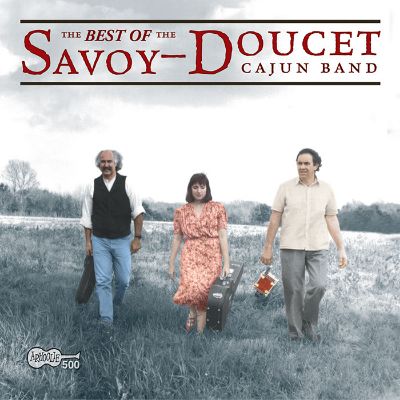Ann Savoy

Growing up in Richmond, Virginia, Ann Savoy was surrounded by music and poetry at home, even before she was gifted a plastic ukulele when she was 10. Savoy is grounded in the land from which she came: the mysteries and beauty of the Piedmont and Tidewater regions of Virginia, and the “gothic depths” of Richmond. Now, as an adult and celebrated practitioner of Cajun music, she boasts a discography that spans albums, books, music videos, liner notes, television and film, and a musical journey that has taken her around the world and into collaborations with many artists – most notably her decades with the Savoy-Doucet Cajun Band but also the Magnolia Sisters and Linda Ronstadt, with whom she recorded the Grammy-nominated Adieu False Heart (2006). As a torchbearer of the Louisiana-based Cajun musical tradition, Savoy is a storyteller above all else, creating a legacy as a historian just as much as a musician.
Savoy’s involvement in the Cajun music scene began when she met Cajun accordionist and her future husband Marc Savoy in 1975, and though their meeting may have been the impetus, the devotion with which Savoy has committed herself to the genre is a testament to a talent wholly her own. After moving to Louisiana with Marc, Savoy learned to play Cajun guitar in a sharp stylistic pivot from the country blues, Virginia folk traditions, and British rock ‘n’ roll she’d grown up with. It helped that Savoy had been fluent in French at the age of 13. Since she began performing in 1977, Savoy has recorded 22 albums of Cajun music with various bands and has produced and recorded even more. Starting with the Savoy-Doucet Cajun Band — which included Ann, Marc, and fiddler Michael Doucet — Savoy traveled the world playing “hardcore Cajun.” With the Magnolia Sisters, an internationally recognized all-female Cajun band, Savoy continued to challenge public perceptions of Cajun music, as women were a very rare sight in Cajun music at the time. Like all her Cajun music projects, Savoy both highlighted and expanded on the tradition.
A spirit of celebration and preservation is at the heart of many of Savoy’s musical Cajun projects. With Vanguard Records, Savoy produced Evangeline Made: A Tribute to Cajun Music (2002), which continued her expansion and exploration of the Cajun tradition by bringing the regional musical practice to the forefront. The Grammy-nominated album featured, among many others, influential musicians like Linda Ronstadt and John Fogerty singing Cajun songs. Water From the Well (2003) showcases musical styles within the Louisiana Atchafalaya Heritage region, and Creole Bred (2004), is a tribute to Creole and Zydeco. Across these albums and her historical publications, Savoy has committed herself to performing and preserving Cajun music for nearly 50 years. The first volume of her book series Cajun Music: A Reflection of a People, which came out in 1985, won the American Folklore Society's Botkin Book Award, and has been regarded as an authoritative source on Cajun and Zydeco music. The books amass the collective histories from over 200 interviews that Savoy conducted with musicians across Louisiana over the course of 45 years. Those interviews currently reside with Arhoolie Records, the label Savoy recorded with for 40 years, and the Arhoolie Ann Savoy Cajun Interviews Collection remains an important archival resource for the tradition. Pairing extensive documentation with a variety of performances and an expansive discography, Savoy both preserves and ignites a genre she has grown into. As famed guitarist T Bone Burnett once said of Savoy: “She doesn't imitate the past, she animates it – she makes dead men walk along a crooked line from the paddocks of Virginia to the swamps of Louisiana.”
Savoy has spent half a lifetime bringing Cajun music to the world. Now, with her new release with Smithsonian Folkways, she’s bringing the world into her home with her earliest influences and the foundations upon which she became a musician. On Another Heart, Savoy returns to the inspirations that brought her to music before she submersed herself in Cajun, zydeco, and the traditions of southwest Louisiana. Originally intended to be a follow-up album with close friend and collaborator Linda Ronstadt, Another Heart was reimagined with the guidance of producer Dirk Powell (Our Native Daughters, Rhiannon Giddens). The album’s songs explore the various regions and sounds Savoy pulled from in her youth, ranging from songs from Virginia’s mountains to tracks from her teens when she was committed to listening to everything, to music she picked up during her trips to London and discovering British folk revival. On songs like “Triste Samedi (A Sad Saturday / Hurricane Song)” the merging of her most critical influences is clear: a story close to Louisiana and sung in French, with a melody derived from Virginia mountain music. While the world may know Savoy as a staple of the Cajun musical tradition, Another Heart reveals something more. As Savoy puts it: “Another Heart is the voice of the other person living inside of me, a mixtape of the sounds of her life, shared from me to the world, with love.”



